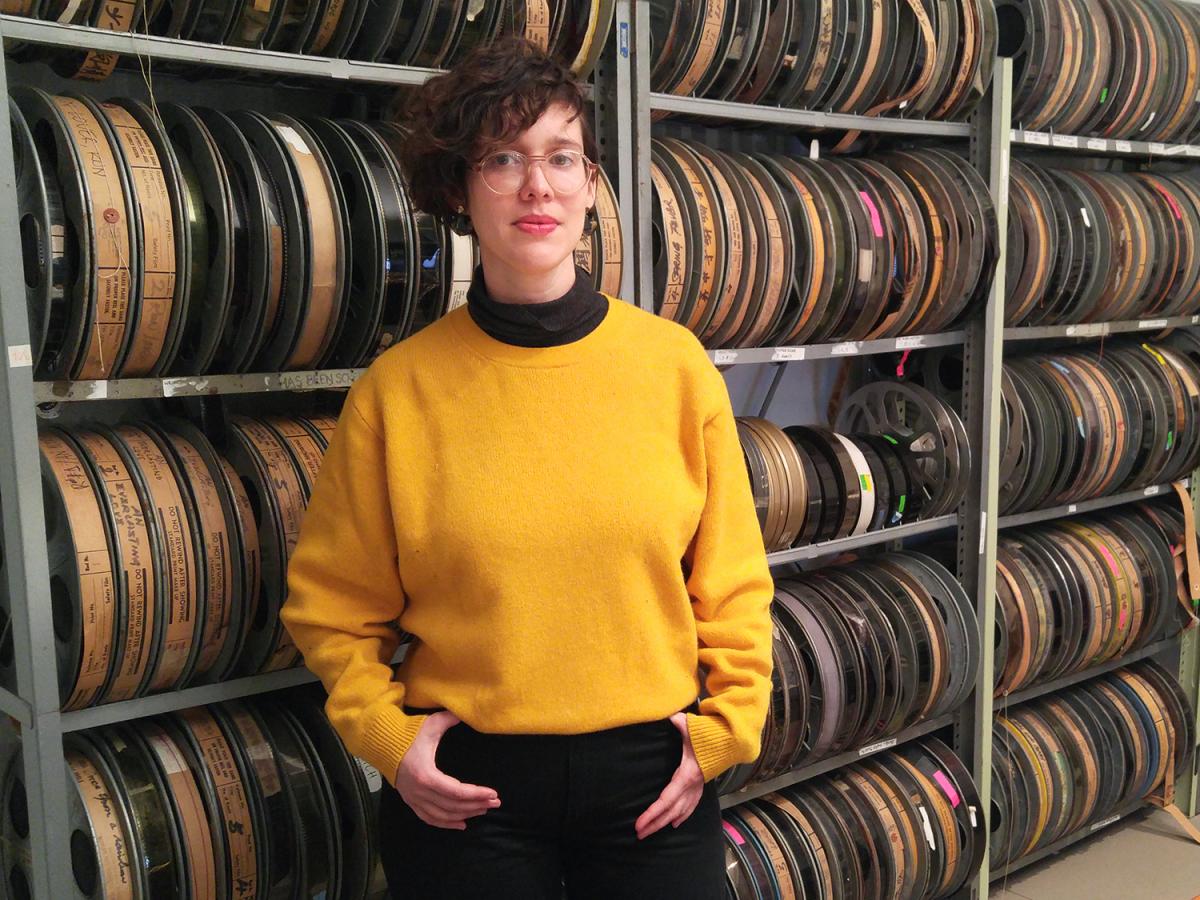March 5, Toronto, ConverSalon
Why not begin with materials? The artist meets the world one film roll at a time, her film miniatures redress and redraw the world in her studio, which is also her camera, her in-camera sessions. Each movie she showed us was shot on a single roll, perhaps she needs these restrictions to find her freedom.
They are made of short scenes, episodes of seeing and re-encounter. Language puns and points – occupying at least two positions at once. She is determined to work her way out of this prison house. From her art/sculpture background she brings a conceptualist’s attention to form, and from her Venezuela home/roots she lends a necessary politics, though without exclamation marks or stridency. Instead her politics infuses her practice, as she carefully deconstructs small figures, or adds painted lines onto a seascape, live, on a sheet of glass placed in front of the camera.
She makes word flags and flip books and ceramic bridges that shelter its viewers. These are models of behaviour, of love under colonialism, showing us haunted landscapes and the ghosts who are forced to occupy them, or worse, are made to leave.
Uprooted, displaced, these are searchings for home. How did Alexandra put it? Venezuela is the egg of South America, the safe place, the one that could be returned to, though all that has changed in recent years.
At ConverSalon, we gathered as a handful of seekers with empty stomachs and open hearts, ready to cover ourselves with Jorge and Alexandra’s lentils and arepas, even while craving Mikel’s cheesecake. We listened to the artist in the living room, who spoke of a newly alive analog experimentalist scene in Barcelona, fuelled by home-made labs and regular screenings. The museum shows two per week, and there are others besides, drawing a steady flow of attendees. These are notes from a scene, a community even, dedicated to the last silver bloom of emulsion, and the face-to-face encounters and relationships that make these minor cinemas possible.

